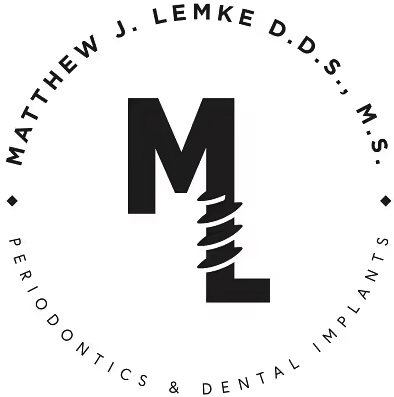Gum Recession Can Be Avoided By Seeking Early Treatment for Gum Disease
Factors That Affect Gum Recession
Gum recession occurs when the gums start to pull back from the roots of your teeth.

Learn More About The Revolutionary No Cut, No Sew Laser Gum Surgery!
Steps To Prevent Recession
Steps suggested to prevent gum recession include:
- Seeing your doctor for regular cleanings and checkups
- Not smoking or using other tobacco products
- Eating a healthy and well-balanced diet
- Using the proper brushing techniques with a soft-bristled toothbrush or an electric toothbrush
- Seeing your doctor to correct a misaligned bite or teeth grinding problems
Gum Recession Treatment in Wooster and Medina, OH
 Gum recession (receding gums) is a common concern for many patients. It occurs when soft tissue starts to erode and recedes down the roots of the teeth.
Gum recession (receding gums) is a common concern for many patients. It occurs when soft tissue starts to erode and recedes down the roots of the teeth.
Receding gums usually develop over time. Some patients may not even notice it happening until it progresses and becomes more apparent. Symptoms of receding gums include gaps between the teeth, tooth sensitivity, changes in the appearance of the smile, and teeth that appear longer than usual. Notches and dents in the tooth structure are also signs of gum recession.
Receding gums, which may indicate gum disease, will not reverse on their own. Preventing or treating gum disease today with Dr. Lemke and Dr. Mehandru can help prevent gum recession tomorrow.
What causes receding gums?
- Gum disease: A bacterial infection in the mouth can destroy soft tissue and lead to bone and tooth loss if left untreated.
- Genetics: Some people are predisposed to developing gum recession due to gum disease, regardless of how well they care for their teeth and gums.
- Vigorous tooth brushing: Brushing too hard can damage soft tissue and contribute to gum recession.
- Poor dental hygiene: Brushing and flossing regularly help prevent harmful bacteria from accumulating on the teeth and gums. Failure to do so can lead to periodontal disease and gum recession.
- Hormonal fluctuations: Women experiencing changes in hormonal levels may develop tissue tenderness and gum recession.
- Tobacco use: Tobacco can cause plaque buildup on the teeth, increasing the risk of periodontal disease and gum recession.
- Grinding and clenching teeth: Constant tooth grinding and clenching can contribute to gum recession.
- Crooked teeth/misaligned bite: When teeth are misaligned, excessive pressure can be placed on the gums and jawbone, leading to gum recession.
- Piercings: Tongue and lip piercings may irritate gum tissue and cause it to recede.
Treatment for Receding Gums
Addressing gum disease: If gum disease is the underlying cause, treatment can help prevent further gum recession. Deep cleanings, laser therapy, and antibiotics may be used to remove harmful bacteria, plaque, and calculus from the teeth and gums.
Grafting: Soft tissue grafting can restore the gumline using material from the patient’s mouth or a tissue bank.
If you have gum recession, Dr. Lemke and Dr. Mehandru in Wooster, OH, can help. Call us today for your consultation.
